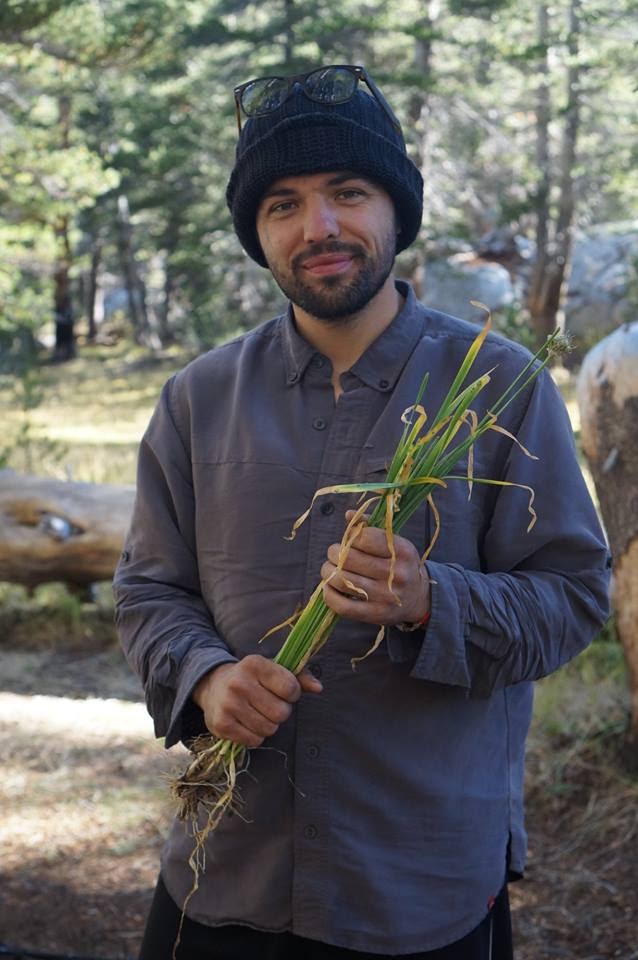Reflections from a Thriving Earth Exchange scientific partner
 Win Cowger, a Ph.D. candidate at the University of California, Riverside, first served as a Thriving Earth Exchange community scientist for a project in Staunton, Virginia. Residents in this small town nestled in the Shenandoah Valley wanted to create a more environmentally sustainable community. Cowger’s expertise helped determine that microplastics weren’t significantly impacting their rivers, enabling the group to focus on more pressing issues that would have a larger environmental impact.
Win Cowger, a Ph.D. candidate at the University of California, Riverside, first served as a Thriving Earth Exchange community scientist for a project in Staunton, Virginia. Residents in this small town nestled in the Shenandoah Valley wanted to create a more environmentally sustainable community. Cowger’s expertise helped determine that microplastics weren’t significantly impacting their rivers, enabling the group to focus on more pressing issues that would have a larger environmental impact.
Now, Cowger is once again serving as a Thriving Earth Exchange community scientist, this time in Pinole, California, where he is helping a diverse group of stakeholders protect the Pinole Creek watershed. In a recent conversation, Cowger shared how his involvement in community projects has changed his perspective on the purpose of science.
“I think that community science takes science to the next level,” Cowger said. “As scientists, we often ask curiosity-based questions, and sometimes those lead to application and utility, but other times they aren’t useful. With community science, we’re guaranteed a useful scientific question, because it comes from community members who have a problem and want to do something about it.”
Learning from the non-scientific community
Cowger wasn’t new to community science when he joined the Staunton project. Previous projects working with community volunteers cleaning up rivers in Iowa and researching trash sources in Southern California had taught him that community volunteers can collect compelling, useful data. He also learned that working with non-scientists can disrupt the “echo chamber” scientists often find themselves in, challenging them to rethink what they believe they know. For example, in a public datathon he hosted with the Trash Monitoring Workgroup, community groups pushed back against Cowger and his colleagues’ narrow definition of trash.
“They said we were missing the bigger picture that solid waste is connected to other forms of pollution, and I think they’re right,” Cowger recalled. “That community challenged me to reassess my science, and it has been really beneficial to me as a scientist to be more flexible in the way that I think.”
With the Staunton community, Cowger learned to “go with the flow” of the community—answering their questions, figuring out their needs and digging into possible solutions. He also had to learn to think on his feet, such as when a miscommunication led him to enter what he thought was a meet-and-greet session, only to encounter a crowd of inquisitive and attentive community members expecting a polished presentation.
“People were lobbing questions at me from all these different angles,” he recalled. “They were super curious about the problem and really wanted to understand it. I’ve definitely learned some very advanced communication skills that I don’t think other scientists ever get to practice.”
Following, not leading
Cowger says that disrupting the scientific “echo chamber” has helped him reframe his work and forced him to understand problems from the community members’ perspective. It also has made him careful to let the community take the lead.
“I see myself as a scientific contractor,” he said. “I’m there to alert them of potential scientific challenges, but I’m not there to steer the conversation. I think that [realization] was something that really helped me when figuring out how to best communicate with community members, so they can steer the science.”
Don’t make assumptions
While he has been excited to be part of two Thriving Earth Exchange projects, Cowger notes that the partnership with Pinole Creek is very different from the Staunton project, involving a more diverse group of stakeholders and different issues to wrestle with. He is aware that he can’t take what he learned from the previous project and make assumptions about this new one. He sees flexibility as key to supporting the Pinole Creek group’s scientific needs.
In addition, Cowger says it’s important to stay cognizant of the bounds of your expertise when serving as a scientific partner. “It forced me to really be careful about my science, and the conclusions that I draw, because I don’t want to mislead anybody,” he said. “It’s okay to say that I don’t know something, but we’ll figure it out once we have the data.”
The funding conundrum
Thriving Earth Exchange’s community scientists work as volunteers, but that is not always financially viable for academics who also have to teach and publish, not to mention eat. In Cowger’s opinion, community science projects aren’t funded anywhere near where they need to be. In fact, he’s had community science proposals outright rejected, because funders were worried about data quality. Cowger suggested reforms to funding allocation, funding priorities and project rubrics are needed in order to prioritize and appropriately reward community science work.
“Funding is going to be the key to doing more community projects,” Cowger said. “Right now, there’s a penalty—you have to try three times as hard to do a community science project, and get paid half as much. The funding doesn’t fit the model. I think about that a lot.”
Thriving Earth Exchange has also recognized this problem, and is making some changes to its funding structures. Community organizations need the expertise scientists bring, and this important work deserves to be funded properly.
Look for stories from other community scientists in our Scientist Spotlights series on the Thriving Earth Exchange blog.

1 Comment
Thriving Earth ExchangeOct 19, 2021 at 6:05 AM
[…] Exchange. Want more scientist stories? Read reflections from scientists working with communities on plastic pollution and […]